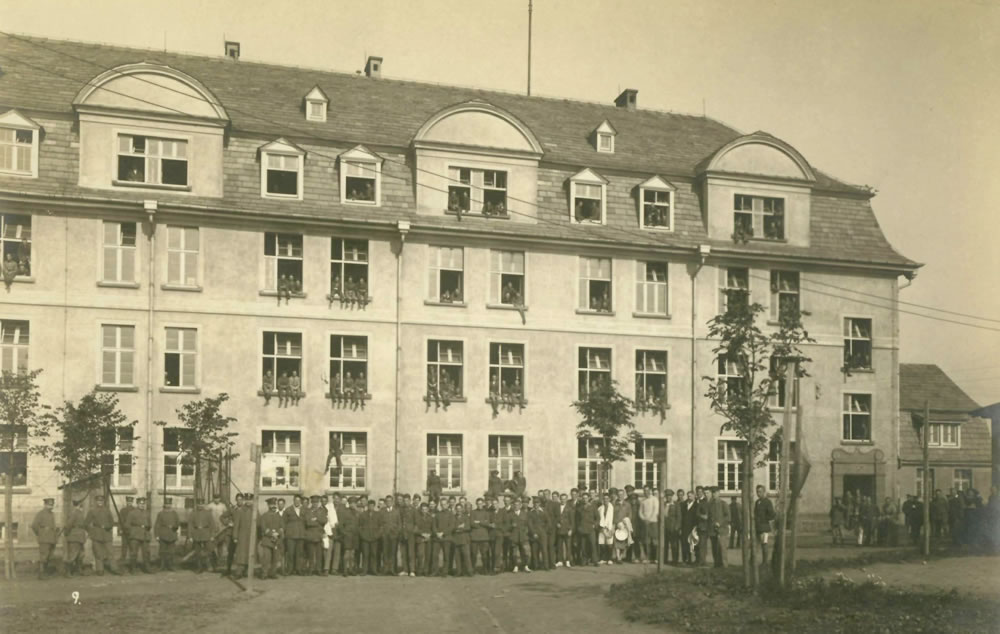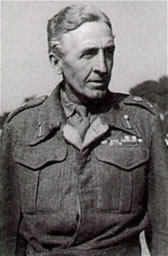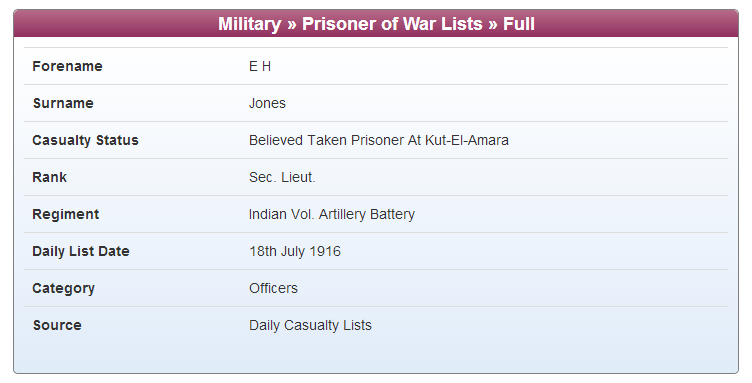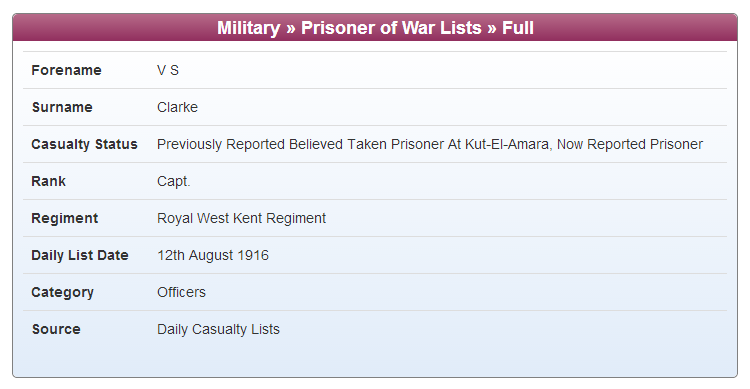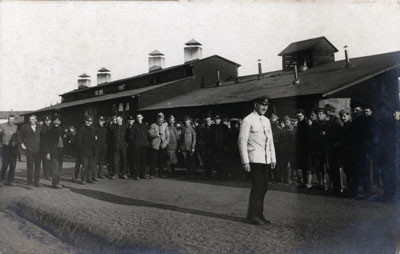Highlighted below are a number of daring escape attempts from the notorious prison camps, ranging from a large scale tunnelling escape bid fromHolzminden POW camp(this first ‘Great Escape’ inspired the escapees a number of years later in the Second World War), totwo Allied Officers making bizarre (and ultimately successful) attemptsto fool their Turkish guards and commandant and gaining their freedom. As conditions were so harsh and Allied Officers had an unwritten code to try to escape, many prisoners tried to escape with stories of failed attempts by prisoners who dressed as women, German guards and civilian workers in desperate attempts to escape.
Prisoner of War information from the First World War is listed on TheGenealogist from 1914 to 1919 as part of the extensive Military Records collection.These records are available to Diamond subscribers.
The Road to En-Dor
Captured during the First World War, Lieutenant Elias Henry Jones of the Indian Vol. Artillery Battery and Lieutenant Cedric Waters Hill of the Royal Flying Corps ended up at the Yozgad prison camp in Turkey. Searching for activities to occupy their time, Lieutenant Jones suggests the idea of making a Ouija board for both curiosity and entertainment. Developing a skill for manipulating his fellow inmates and ably assisted by Lieutenant Hill, they manage to dupe both fellow prisoners and their Turkish captors. As things develop, they use their new-found hobby to dupe their captors into setting them free following a tale of séances, treasure hunts with messages from the spirit world and faked suicides.
Prisoners of War are often forgotten in Great War commemorations but many thousands of British and Commonwealth troops suffered the dreadful hardships of captivity, some for almost the full duration of the war. TheGenealogist has brought together a comprehensive set of records of both officers and other ranks (who were the vast majority of prisoners) providing the most in-depth set of World War One Prisoner of War records now available. The records include British and Commonwealth military personnel and have been brought together from a variety of sources including the unique to TheGenealogist ‘Casualty Lists’ from 1914 to 1919 and form part of the extensive collection of over 2 million military records added in 2014.
If you’re struggling to find an ancestor’s war record, it’s worth searching the new extensive Prisoner of War collection in the Military Records on TheGenealogist.
The records are fully searchable and provide the main details including forename, surname, rank, regiment and the date the information was received. All can be found in the Prisoner of War record set in the Military Collection on TheGenealogist. They cover the army, navy and air force of the many thousands of British and Commonwealth servicemen held captive.
Some of the main techniques used to escape
by Allied servicemen
- Tunnelling
- Dressing as a German Guard
- Dressing as a woman
- Dressing as a civilian worker
- Pretending to be psychic
- Faking insanity
Case Studies

Sergeant-Major Turner
The new records also show in certain cases what happens to a soldier whilst in captivity in our Prisoner of War records. Here we see Sergeant-Major Turner of the Sherwood…
Read More…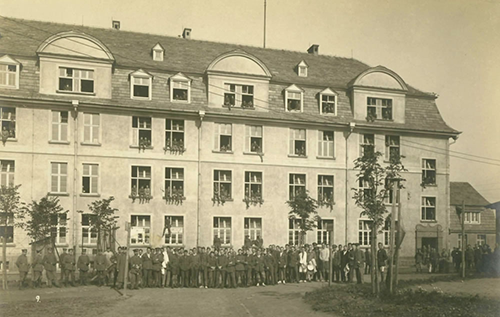
Holzminden PoW Camp
Holzminden Prisoner of War Camp, near Hannover, accommodated the most ‘troublesome’ officers, those who had repeatedly tried to escape. …
Read More…
Escape from The Yozgad POW camp
The new records on TheGenealogist also reveal the details of two Allied Officers who went to extraordinary lengths to try to win their freedom. …
Read More…TheGenealogist has a wide and varied collection of military records
available to
access. Find out more on how you can discover your ancestors from a
range of
subscriptions
available.


